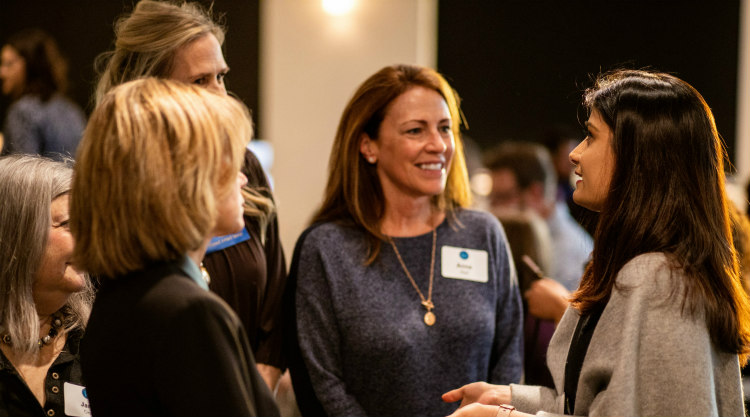Every year the UMKC Women’s Council awards scholarships to enable post-baccalaureate students to pursue opportunities
Swetha Chintala is working to improve a new photoactivated insulin delivery method for people with diabetes. Her Women’s Council Graduate Assistance Fund Award is making that process easier.
Chintala began working on improving photoactivated insulin delivery when she joined the team of Simon Friedman, Ph.D.’s lab in Spring 2016. Their goal is to develop a minimally invasive light-activated artificial pancreas that is able to deliver both insulin and glucagon on demand, eliminating the need for people with diabetes to inject insulin. She received a Women’s Graduate Assistance Fund (GAF) award to further her work last year.
“It was a huge relief when I heard from the committee that I received the award, particularly because of the pandemic lockdown,” Chintala says. “I have been able to purchase software required to analyze my data. We have recently communicated our work with a scientific journal for publication. After publication, I will also make use of the GAF award to present my work on glucagon administration at a national conference.”
Debbie Brooks, JD ‘01 is assistant dean of the UMKC School of Law, the Women’s Council board of director’s president and a GAF donor. She understands the significance of the grants.
“I was a GAF recipient,” she says. “I applied for funds to take a prep course for the bar [association.] I continue to give back.”
Brooks says the fund was established specifically to support women such as herself and Chintala.
“You have to remember, when we started [in 1970] women weren’t supported in advanced degrees. They faced prejudice like, ‘Women can’t do math,’ and ‘Women can’t be engineers.”
She notes that some of these challenges still exist today.
“We are still a patriarchal society. It can be difficult to complete your dream while you have a family. Many of our women students still have primary responsibility for child care. They are expected to be excellent partners, mothers, employees and students.”
Brooks has donated to the program since she received her award because she is committed to expanding opportunities for women scholars.
“Students can use funds in many ways to help them achieve their academic goals as long as it’s not tuition, textbooks or software the academic department provides,” Brooks says. “The grants are not restricted to travel expenses or the sciences and professional schools. We receive applicants from the arts. Beyond research and conferences, some of our recipients may to go to other cities to pursue opportunities in theatre or dance.”
The committee looks forward to bringing recipients and their families together at the awards ceremony recognizing recipients every year. Just as the pandemic is making students’ research more difficult, it is interfering with plans for this year’s event.
“Next year – 2021 — is the 50th anniversary of the awards. We are a determined group,” Brooks says. “We will find the best way to commemorate the recipients’ accomplishments.”

